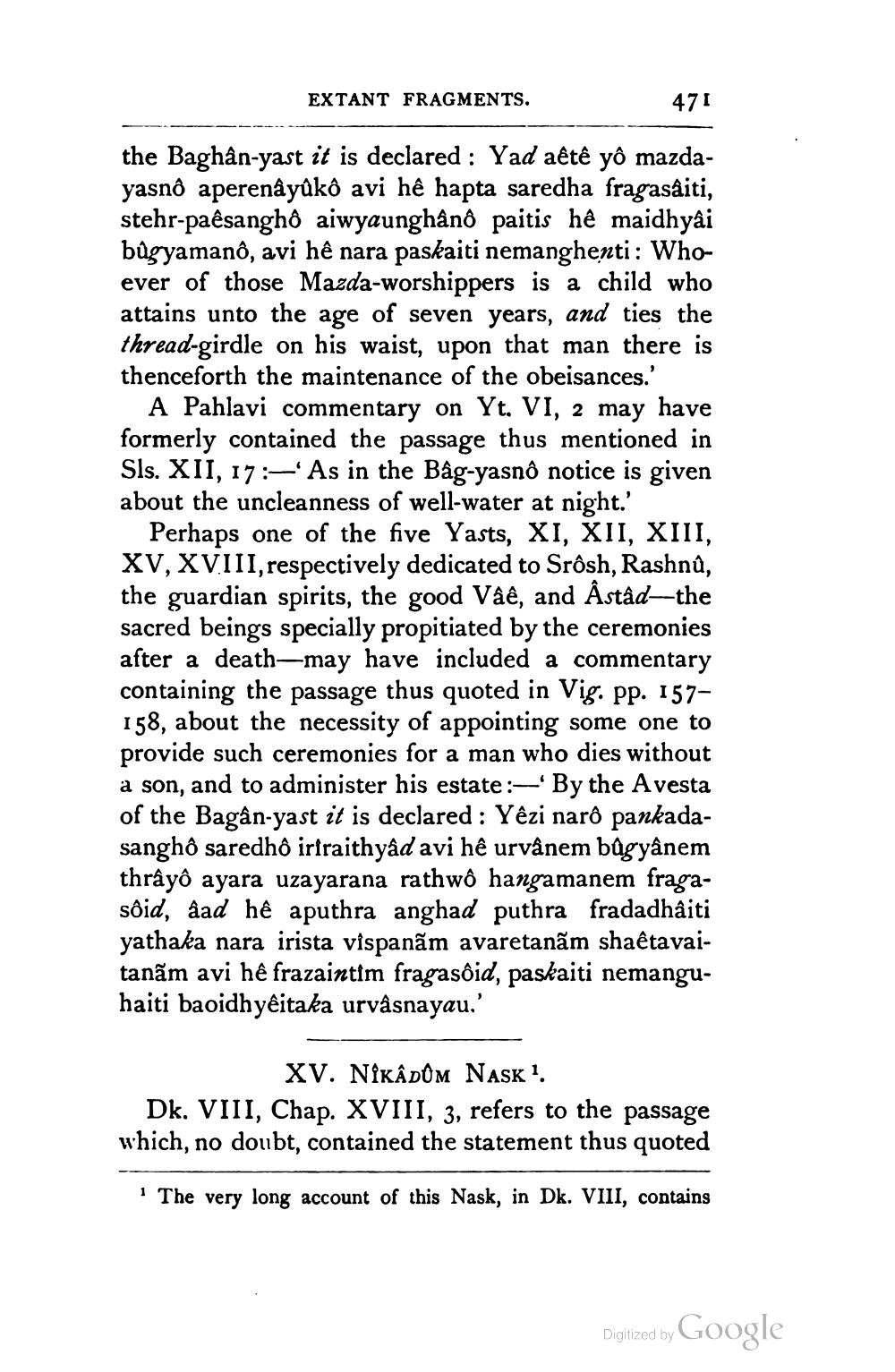________________
EXTANT FRAGMENTS.
471
the Baghân-yast it is declared : Yad aêtê yô mazdayasnô aperenâyükô avi hê hapta saredha fragasäiti, stehr-paêsanghô aiwyaunghânð paitis hê maidhyâi bugyamanô, avi hê nara paskaiti nemanghenti: Whoever of those Mazda-worshippers is a child who attains unto the age of seven years, and ties the thread-girdle on his waist, upon that man there is thenceforth the maintenance of the obeisances.'
A Pahlavi commentary on Yt. VI, 2 may have formerly contained the passage thus mentioned in Sls. XII, 17:— As in the Bâg-yasno notice is given about the uncleanness of well-water at night.'
Perhaps one of the five Yasts, XI, XII, XIII, XV, XVIII, respectively dedicated to Srôsh, Rashnů, the guardian spirits, the good Vâê, and Astâd—the sacred beings specially propitiated by the ceremonies after a death—may have included a commentary containing the passage thus quoted in Vig. pp. 157– 158, about the necessity of appointing some one to provide such ceremonies for a man who dies without a son, and to administer his estate:— By the Avesta of the Bagân-yast it is declared : Yêzi narô pankadasanghô saredhô irfraithyâd avi hê urvånem būgyânem thrâyô ayara uzayarana rathwô hangamanem fragasốid, aad hê aputhra anghad puthra fradadhậiti yathaka nara irista vispanãm avaretanam shaêtavaitanãm avi hê frazaintîm fragasôid, paskaiti nemanguhaiti baoidhyêitaka urvâsnayau.'
XV. NIKADŮM NASK". Dk. VIII, Chap. XVIII, 3, refers to the passage which, no doubt, contained the statement thus quoted
· The very long account of this Nask, in Dk. VIII, contains
Digitized by Google




